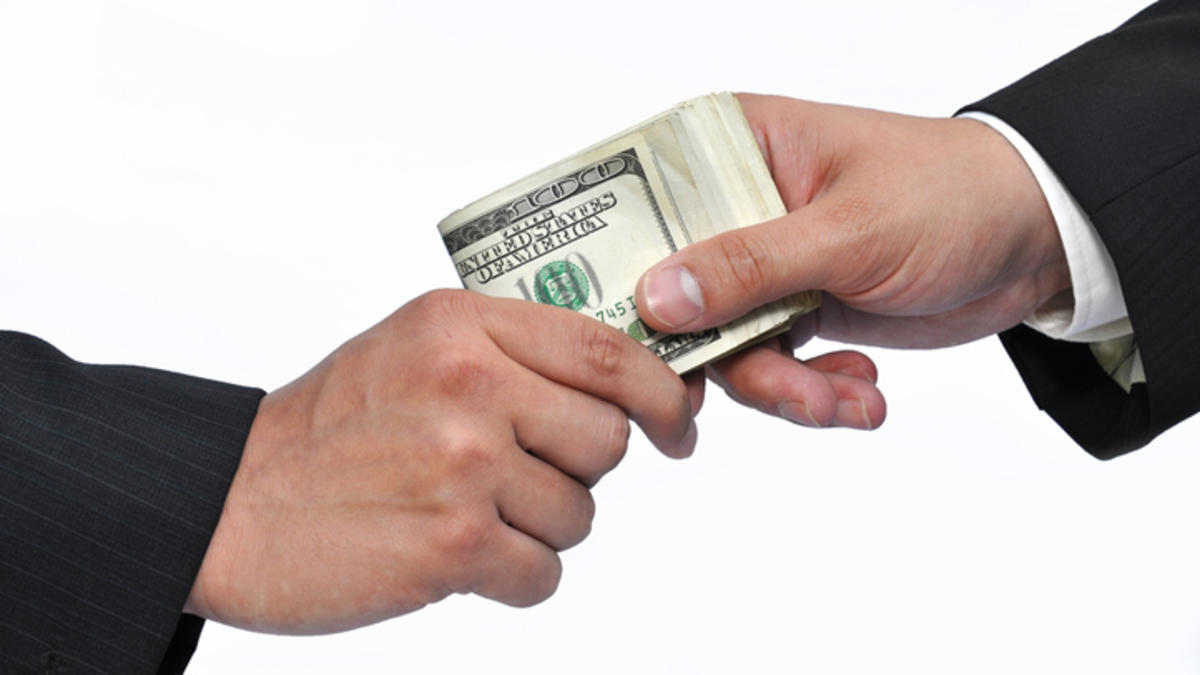Bribery
Bribery is in Germany according to § 334 of the Criminal Code with up to 5 years imprisonment threatened crime. Bribery if that person a public official ( elected office, official, public employee, etc. ), a particularly obligated for public service or a soldier in the German army in return for that he has made an official act or will make in the future, an advantage for this or a third party offers, promises or grants. The official who calls the advantage for himself or a third party, or accepts a promise is to be penalized for accepting an advantage ( § 331 StGB) or bribery ( § 332 StGB). Preamble is corruption.
In addition to state functioning in § 334 of the Penal Code and the business traffic in § 299 StGB Bribery is protected. Even third advantages are protected here.
The order of business may be a mere hint, but also the acquisition of information, including those that are subject to confidentiality (eg information about a tender ).
The advantage is usually materially measurable; but it can also be intangible (ie not directly measurable in money ) be. Example: Someone receives a bribe gift of a medal or is adopted by a nobleman.
" Bribery " describes the criminality of the active part of such a relationship ( grant of an advantage to obtain a wrongful act). The passive part (acceptance of a benefit as consideration for the provision of a wrongful act) is convicted of " bribery ".
Previously, you could sell " donations of commerce" ( bribes ) tax in Germany. These grants were in some places recorded as " useful expenditures " (NA).
On September 1, 2002, a tightening of § 299, entered into force: Since all bribes paid by German companies to foreign business partners are liable to prosecution - and thus no longer tax deductible. Until then, this only applied to domestic commerce or the bribery of foreign public officials.
MPs are under German law, no public official, but elected officials. Therefore, you can be prosecuted only if the waiver of immunity for bribery. Punishable has only been the buying of votes. Germany is one of the few countries that has not yet, the MPs bribery by the standards of the relevant UN Convention against Corruption is punishable. This was true at the time signed by Brigitte Zypries ( German Minister of Justice during the Grand Coalition 2005-2009), but not yet ratified by the Bundestag. On 21 February 2014, the Bundestag passed a tightening of the rules of the MPs bribery in second and third reading. In the future, MPs bribery by up to five years in prison being punished. The same penalty applies to Federal and state MPs that can be bribed.
Major bribery scandals were or are:
- The Siemens scandal of the early 20th century, and the so-called Siemens complex, which since November 2006 revealed corruption structures
- The Lockheed bribery scandals
- As well as some so-called donations affairs: the Flick Affair in the 1980s
- CDU funding scandal - in 1999 uncovered illegal donation policy of the CDU in the 1990s (see also Karlheinz Schreiber )
- Cologne donations scandal: the Cologne SPD received donations of Trienekens to " promote " the construction of an incinerator to
- Extensive political contributions by Enron, which were referred to as corruption within the meaning of bribery










